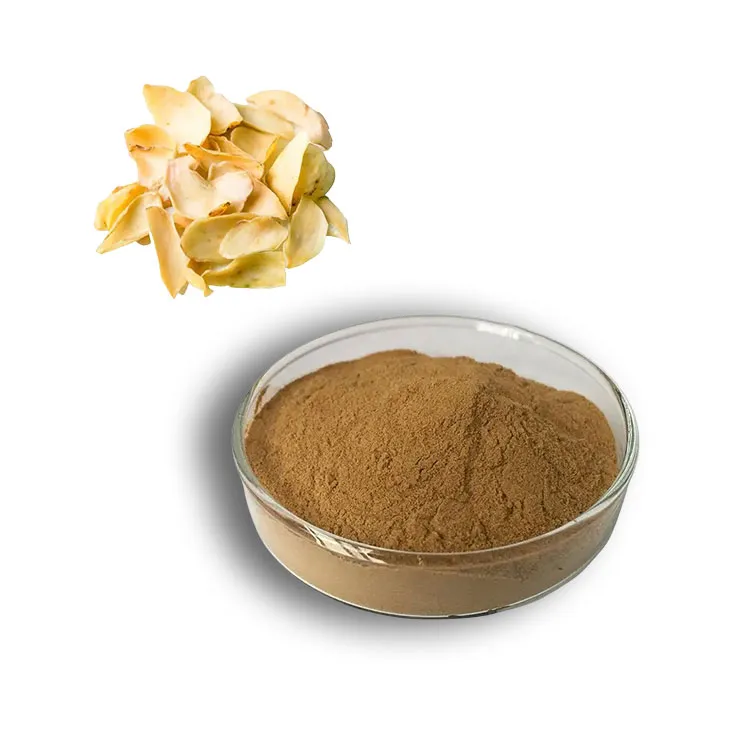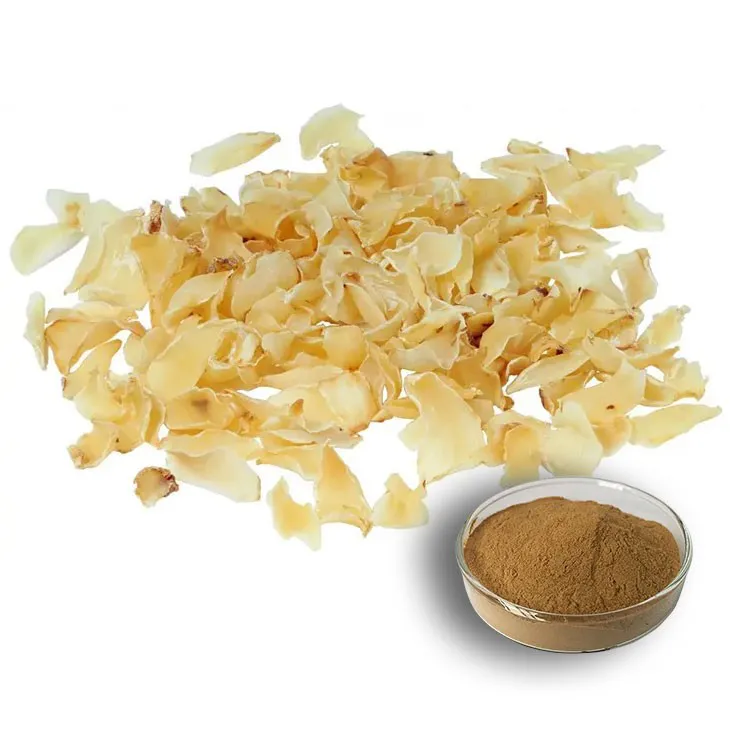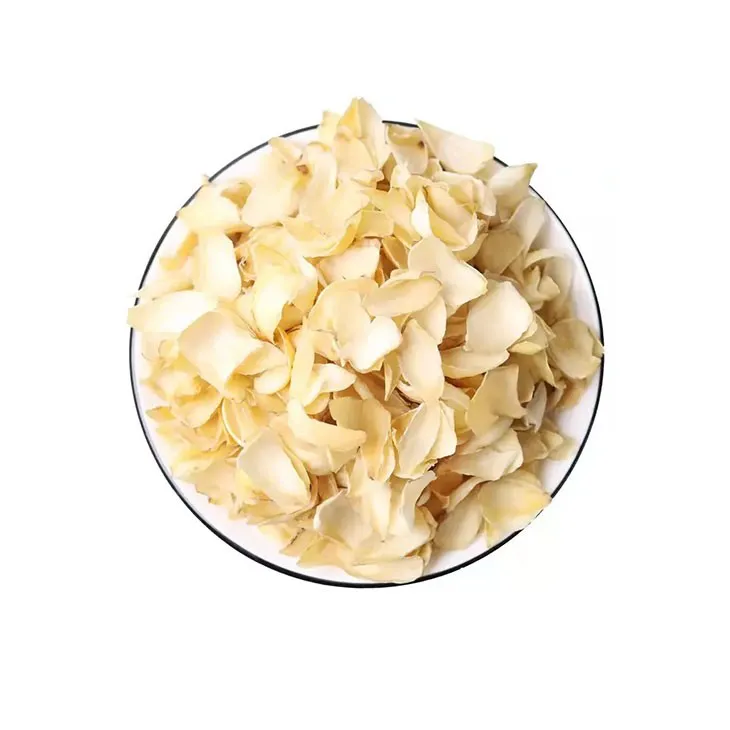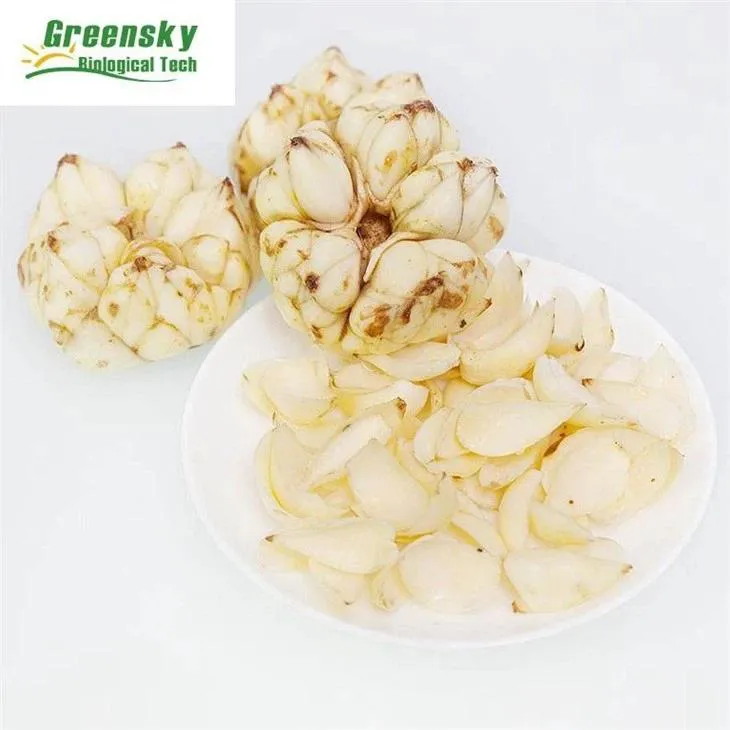- 0086-571-85302990
- sales@greenskybio.com
Five Effects of Lily Extract + Dosage, Side Effects
2024-11-11

1. Introduction
Lily extract has been gaining increasing attention in the realm of natural health remedies. Derived from the beautiful lily flower, this extract is rich in various bioactive compounds that offer a plethora of health benefits. In this article, we will explore in detail the five major effects of Lily extract, as well as discuss the appropriate dosage and potential side effects.

2. The Five Effects of Lily extract
2.1 Anti - inflammatory Properties
Lily extract contains compounds that possess anti - inflammatory capabilities. Inflammation is the body's natural response to injury or infection, but chronic inflammation can lead to various health problems such as arthritis, heart disease, and certain cancers.
Studies have shown that the bioactive components in lily extract can inhibit the production of inflammatory mediators, such as cytokines and prostaglandins. By reducing inflammation, lily extract may help alleviate symptoms associated with inflammatory conditions, including joint pain, swelling, and redness.
2.2 Antioxidant Activity
One of the most significant benefits of lily extract is its antioxidant activity. Antioxidants play a crucial role in protecting the body against oxidative stress, which is caused by an imbalance between free radicals and the body's antioxidant defense systems.
Free radicals are highly reactive molecules that can damage cells, DNA, and proteins. Lily extract contains antioxidants like flavonoids and phenolic compounds that can scavenge free radicals, preventing them from causing cellular damage. This antioxidant activity may contribute to reducing the risk of chronic diseases, such as neurodegenerative disorders, cardiovascular diseases, and age - related macular degeneration.
2.3 Skin Health Promotion
Lily extract has been found to be beneficial for skin health. It can be used both topically and internally to improve the condition of the skin.
Topically, lily extract can moisturize the skin, improve its elasticity, and reduce the appearance of wrinkles. The antioxidants present in the extract help protect the skin from environmental damage, such as UV radiation and pollution. Internally, the nutrients in lily extract can support the overall health of the skin by promoting collagen production and improving skin cell turnover.
2.4 Respiratory Health Support
For those with respiratory issues, lily extract may offer some relief. It has properties that can soothe the respiratory tract and improve lung function.
Lily extract can help reduce inflammation in the airways, making it easier to breathe. It may also have expectorant properties, helping to loosen and expel mucus from the lungs. This can be particularly beneficial for individuals with asthma, bronchitis, or other respiratory conditions.
2.5 Stress and Anxiety Reduction
In modern life, stress and anxiety are common problems. Lily extract has shown potential in reducing stress and anxiety levels.
Some of the compounds in lily extract may have a calming effect on the nervous system. They can help regulate neurotransmitter levels, such as serotonin, which is associated with mood regulation. By promoting a sense of relaxation, lily extract may be a natural alternative for those looking to manage stress and anxiety without relying on pharmaceutical drugs.

3. Dosage of Lily Extract
The appropriate dosage of lily extract can vary depending on several factors, including the form of the extract (e.g., tincture, capsule, powder), the intended use, and the individual's health status.
For general health maintenance:
- If using a lily extract tincture, a typical dosage might be 1 - 2 milliliters, taken 1 - 2 times per day.
- When it comes to lily extract capsules, 200 - 500 milligrams per day may be sufficient.
For specific health conditions:
- In cases of respiratory problems or skin issues, a slightly higher dosage may be required. However, it is important to consult a healthcare professional before exceeding the general recommended dosages.
- For stress and anxiety reduction, starting with a lower dosage, such as 100 - 200 milligrams of lily extract powder per day, and gradually increasing if necessary under medical supervision, can be a safe approach.

4. Side Effects of Lily Extract
While lily extract is generally considered safe for most people, there are some potential side effects that should be noted.
Allergic Reactions:
- Some individuals may be allergic to lily extract. Symptoms of an allergic reaction can include skin rashes, itching, swelling, and in severe cases, difficulty breathing. Those with known allergies to lilies or other plants in the Liliaceae family should avoid using lily extract.
Gastrointestinal Disturbances:
- Taking high doses of lily extract may cause gastrointestinal side effects such as nausea, vomiting, and diarrhea. It is important to adhere to the recommended dosages to minimize the risk of these adverse effects.

5. Conclusion
Lily extract offers a range of health benefits, from anti - inflammatory and antioxidant effects to promoting skin and respiratory health, as well as reducing stress and anxiety. However, it is essential to use it in the appropriate dosage and be aware of the potential side effects. As with any natural remedy, it is advisable to consult a healthcare provider before incorporating lily extract into your health - related regimens, especially if you have pre - existing health conditions or are taking other medications.
FAQ:
What are the five effects of lily extract?
The five effects of lily extract may include antioxidant properties, which can help combat free radicals in the body. It may also have anti - inflammatory effects, potentially reducing inflammation in various tissues. Lily extract might contribute to soothing the nervous system, aiding in relaxation and stress reduction. It could potentially have a positive impact on respiratory health, perhaps helping with coughs or other minor respiratory discomforts. Additionally, it may have some benefits for skin health, such as promoting a healthy complexion.
What is the recommended dosage of lily extract?
The recommended dosage of lily extract can vary depending on factors such as the form of the extract (e.g., capsule, tincture), the intended use, and individual health conditions. Generally, for a standard lily extract supplement in capsule form, a common dosage might be around 500 - 1000 mg per day. However, it is always best to consult a healthcare provider before starting any new supplement regimen to ensure the proper dosage for your specific situation.
Are there any side effects of lily extract?
While lily extract is generally considered safe for most people when taken as directed, some potential side effects may occur. In some cases, it may cause mild gastrointestinal upset, such as nausea or diarrhea. People with allergies to lilies or related plants may also experience allergic reactions. Additionally, if taken in excessive amounts, it could potentially lead to more severe adverse effects, which is why it's important to follow the recommended dosage.
Can lily extract be used for skin care?
Yes, lily extract can be used for skin care. Its antioxidant properties can help protect the skin from damage caused by environmental factors like UV rays and pollution. It may also have moisturizing and soothing effects on the skin, which can contribute to a healthier complexion. Some skin care products contain lily extract for these potential benefits.
How does lily extract help with respiratory health?
Lily extract may help with respiratory health in several ways. It may have expectorant properties, which can help loosen mucus in the lungs and airways, making it easier to cough up. Additionally, its anti - inflammatory effects may reduce inflammation in the respiratory tract, which can be beneficial for conditions such as bronchitis or the common cold.
Related literature
- The Health Benefits of Lily Extract: A Comprehensive Review"
- "Lily Extract: Dosage, Safety, and Therapeutic Applications"
- "Exploring the Antioxidant and Anti - Inflammatory Properties of Lily Extract"
- ▶ Hesperidin
- ▶ citrus bioflavonoids
- ▶ plant extract
- ▶ lycopene
- ▶ Diosmin
- ▶ Grape seed extract
- ▶ Sea buckthorn Juice Powder
- ▶ Beetroot powder
- ▶ Hops Extract
- ▶ Artichoke Extract
- ▶ Reishi mushroom extract
- ▶ Astaxanthin
- ▶ Green Tea Extract
- ▶ Curcumin Extract
- ▶ Horse Chestnut Extract
- ▶ Other Problems
- ▶ Boswellia Serrata Extract
- ▶ Resveratrol Extract
- ▶ Marigold Extract
- ▶ Grape Leaf Extract
- ▶ blog3
- ▶ Aminolevulinic acid
- ▶ Cranberry Extract
- ▶ Red Yeast Rice
- ▶ Red Wine Extract
-
Curcuma Longa Extract/Turmeric extract
2024-11-11
-
Hops Extract
2024-11-11
-
Mango flavored powder
2024-11-11
-
Kelp Extract Powder
2024-11-11
-
Shikonin
2024-11-11
-
Diosmin
2024-11-11
-
Sea buckthorn oil
2024-11-11
-
Natural grape seed extract
2024-11-11
-
Horse Chestnut Extract
2024-11-11
-
White mustard seed extract
2024-11-11





















